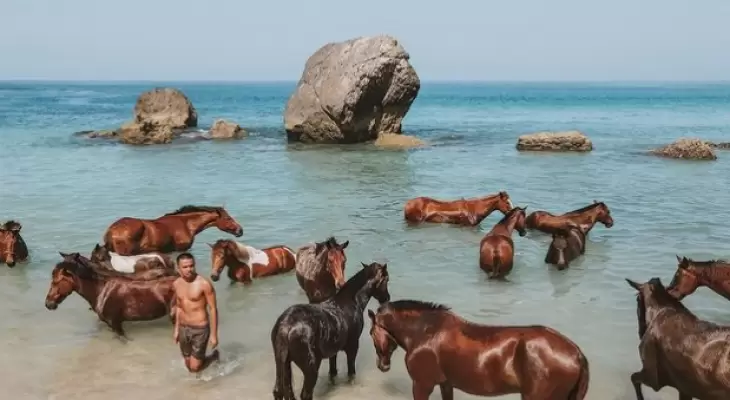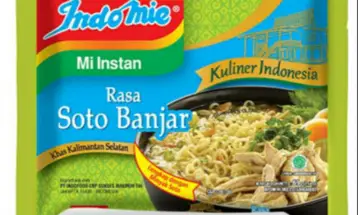The Lineage of the Sandalwood Pony in Sumba, Central to the Indonesian Islands Culture

Holiday Ayo - Named after the scented trees that once covered the island, the Sandalwood pony of Sumba is the only breed of horse in Indonesia that is still intrinsic to the local economy, culture, and religion.
A spirited and nimble animal with good stamina and a friendly disposition, the Sandalwood pony is also the only breed of horse in Indonesia that is exported overseas: as children’s ponies in Australia and racehorses in Singapore, Malaysia, and other parts of Southeast Asia. They are also sought after by abattoirs in the Indonesian province of Sulawesi where horse meat is a delicacy.
But the proliferation of motorbikes coupled with perennial drought in Sumba, some 800km (497 miles) east of Bali, is forcing more people to migrate from rural to urban areas and some worry the pony is being left behind.
Petrus Ledibani, assistant stable manager at Nihi Sumba, a luxury resort that offers a variety of horse-based activities, says when his father was young, every Sumbanese child could ride.
“But now many children have never even sat on a horse – only those whose families own horses or are involved with horse racing know how to ride,” he said.
One of eight official horse breeds gazetted in Indonesia, Sandalwood ponies have small ears, a short muscular neck, and an unusually long back. Their lineage dates back to the eighth century when traders from China first visited Indonesia.
“They’re called Sandalwood ponies because the Chinese swapped Mongolian ponies for sandalwood with the locals,” Carol Sharpe, an expert in natural horsemanship from Australia who founded the stables at Nihi Sumba told.
“Later they were bred with Arabian horses brought by traders from the Middle East. The Arabian is naturally a very flighty horse while the Mongolian is also fast but stockier with more stamina, so it’s a very good mix. But they’re not good for labor because of their small stature, probably because of centuries of malnourishment. There’s lots of grass on the island but most of it is not nutritious.”
But the Sumbanese, who practise Catholicism or Islam peppered with animism, found plenty of other uses for the ponies: transport, status symbols, dowry payments, sacrifices for funerals and as vehicles to store wealth.
In the 1930s, Dutch colonists introduced circuit-style horse racing to the island.
A racehorse breeding industry that crosses Sandalwood ponies with Australian Thoroughbreds also emerged and is now dominated by Indonesians of Chinese heritage. But many breeders in Sumba have little concern for the welfare of their animals, according to Sharpe.
“The crossbreeds develop a lot of back problems due to being started racing too early. I’ve seen foals as young as 12 or 18 months on the track. They also interfere with them, inject steroids and feed them energy drinks or coffee before races,” she said.
A ride to heaven
The Sumba Foundation, a charity that provides potable water, healthcare, nutrition, and education to about 35,000 people on the island, has also capitalized on tourists’ appreciation for horses on Sumba.
“We get kids from the villages to come down to the beach with their horses for races. Tourists buy tickets to place bets on their favorites and all the winning go towards specific projects,” said general manager Patrick Compau.
“At our last race, we raised $4,400 for a little girl with a rare genetic defect in her intestines who needs surgery in Bali to save her life.”
Adds Claude Grave, the charity’s founder: “We’re seeing kids as young as eight turning up to compete, all proud. It’s great that we can raise money but for me, the kids’ races are all about preserving the culture.”
Despite the recent changes in Sumba life, horse breeder Hani believes the Sandalwood pony will always be part of the island’s culture.
“They’re no longer used by most people for transport because motorbikes are more convenient but they’re still used in every part of our culture,” he said. “When a boy wants to marry a girl, they have to give her parents horses. When someone dies, the family must sacrifice a horse because we believe it will take their soul to heaven.
“Horses are our best friends in Sumba, a part of the family,” he says. “Owning one is a symbol of pride. If a person has a horse, it means they are of good character.”








Leave a comment